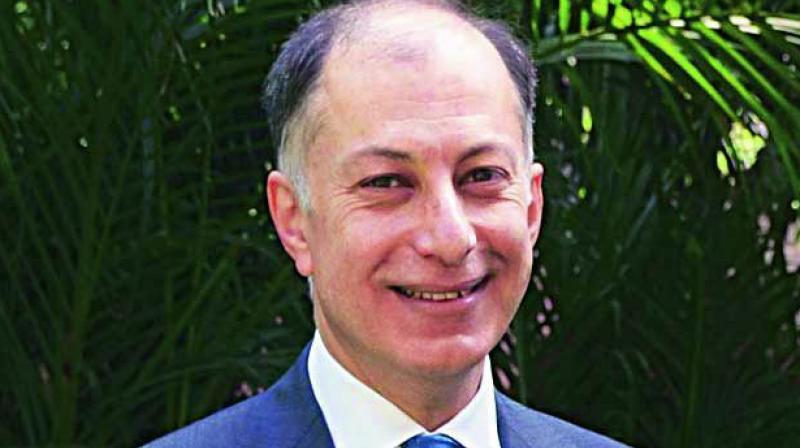Sunday Interview: 4-tax rate structure a practical way'

Dr Naushad Forbes, CII president, believes that provision of anti-profiteering in GST supporting bills passed by the Lok Sabha is a ‘retrograde’ move. In an interview with Pawan Bali, Dr Forbes talked about various issues surrounding GST.
The Lok Sabha has just passed four GST supporting bills. How do you see the development?
It is a very good thing that GST is moving ahead. The industry is looking at it to come into effect on July 1.
How do you see the proposal of setting up an anti-profiteering body to see that benefits of tax cuts under GST are passed on to consumers?
I think it is a bad move. It is a throwback to the bad old days of Indira Gandhi trying to control what price levels should exist for the companies. At the end of the day, competition is the only way to control prices. The way to control what one private company does is through another private company.
There have been arguments that the Competition Commission of India (CCI) is there to look at these issues and there is no need to set up a separate body.
I don’t think there is any need for any body. When Australia implemented its GST, it followed a different approach towards anti-profiteering. We had a discussion with the person who played a key role in implementing GST there. He said we have a similar kind of anti-profiteering provision. Instead of imposing a fine on people, they followed a name and shame approach. He says at the end of the year they forgot about all this and left it to competition.
Do you think there is enough competition in the market to allow passing of any tax cuts to consumer?
I think so. If a company is trying to take advantage of this, the best way is to let everyone know about it. By doing this, you have all the competitors of that company come in the market and undercut that company.
A section of the industry wanted that GST implementation should be postponed to September 1 due to logistic issues that need to be resolved?
The industry wants GST to be implemented as soon as possible. All companies have been working hard on getting their I-T systems and so on in place. What we have been saying is: It is important that the system be tested with real data and that is what the government also said.
According to the government, we would have month and a half of testing with real data starting in November (2016). But it was not ready. So that deadline passed, but I think it would be still good to have time to do testing with real data because if there are any gaps in the system they need to be sorted.
Some market analysts are saying that in the initial stages of implementation of GST revenues of the companies may get hit due to hiccups.
I don’t think so. Will there be hiccups? Anything as far as reaching GST is concerned, there are going to be some hiccups. But I don’t think that it will hit the revenues. I think companies and everyone will work hard to get over those hiccups as quickly as possible and it will be matter of weeks rather than months for everything to settle down.
There has been demand for an amnesty in the initial stages of GST implementation as people may make mistakes as the new tax gets rolled out?
Mistakes should be corrected. I don’t think there is need for any amnesty for any given time-period. Anybody who breaks the law needs to face consequences of that action.
There was some criticism during the Lok Sabha discussion that instead of one GST rate, India has got four-tax rate structure.
I see it as a practical way forward to put GST in place where all existing rates will converge along these four rates. We hope that over a period of time, we will converge to one or two rates. As the confidence of Centre and state will grow with taxes being collected and there is no negative loss of taxes, they will be more confident about fewer rates.

